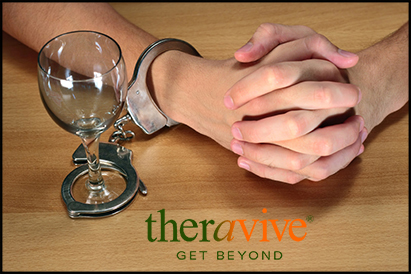May 11, 2015
by Cynthia Morales

A smoking ban passed in New Orleans went viral across the city after midnight on Wednesday, April 22, putting out a once legal habit in a number of public facilities including bars, restaurants and entertainment venues (“Smoking ban goes into effect in New Orleans”, 2015). It’s a strikingly health conscious move that follows in the footsteps of many other cities, including New York, Chicago and Houston (“Comprehensive Smoke-Free Laws — 50 Largest U.S. Cities, 2000 and 2012”)
[More]
April 2, 2015
by Joan Childs,LCSW

We now know that one of the chief causes of addiction is lack of connection. It has been documented by Johann Hari in his recent publication, The Likely Cause of Addiction Has Been Discovered, and It Is Not What You Think (Hari, 2015) that after many studies and research, the primary cause of addiction is a lack of bonding. When this occurs, human beings go into crisis. (Buber, 1958). When this happens before the developmental stages reach adulthood, the chronicity of loneliness becomes a set up for addiction. Hence, the drama begins.
[More]
March 6, 2015
by David Porter, MA

Currently, rates of caffeine consumption in the United States are stable- the FDA indicates that as of 2012, the rates of consumption have not increased; however, the source of consumption – e.g.- energy drinks- has (Food and Drug Administration, 2012). This is contradictory with the casual observation of the the popularity of caffeinated energy drinks, such as Red Bull and Monster, and increasingly large serving sizes of coffee.
[More]
Neurofeedback, or qEEG neurotherapy, records the individual’s unique brainwave patterns and utilizes auditory and visual feedback to train brainwaves to a normalized pattern (Quinn, Bodenheimer-Davis, & Koch, 2004). Alcoholics and illicit substance users show similar abnormal brainwave patterns outside the range of individuals without dependence upon alcohol or illicit substances.
[More]
February 16, 2015
by Joan Childs,LCSW

Codependency syndrome was originally coined and named when Melodie Beattie worked at Hanley Hazelton with recovering addicts and alcoholics. She identified the significant others to the addicts as co-dependent, implying that the addict was addicted to a substance, but the significant other was addicted to the addict. Current research sheds new light on how codependency negatively affects people from all walks of life.
[More]
The overall message from the research seems to be that the development of addiction is a complex interaction between biology and environment. As with any health condition, the more risk factors an individual has for developing a problem, the more there needs to be an awareness of the need for protective/prevention based behaviors and for identification of early warning signs of a problem.
[More]
Humans are fascinating, and sometimes baffling creatures. Psychologists have developed multitudes of theories about why we do the things we do. Their research helps us understand the connections between our thinking, our behavior, and our emotions. For example, why do we help a stranger even when it puts us in danger? Why do we do things that we know are bad for us? Why do we say one thing, and then do another? In addition to trying to answer questions like these, psychological research can also to help behavioral health professionals develop more effective treatments for mental illness and emotional distress.
FB- If you have an addiction, you use cognitive dissonance every day even if you don't know it. Find out why and how you can manage it to your benefit.
[More]
Can we really become addicted to something we need to survive? First, we must understand what addiction is, and what it isn’t, to determine if eating behaviors and food can become addictions, with the symptoms and consequences associated with other types of addictions, like drug or alcohol addiction. Only then can we understand why many professionals believe that we can, indeed, become addicted to food.
[More]
Technology is not good or bad; it is just another part of life—like food and money- that we have to relate with in a conscious way. With some awareness, you will gradually find a balanced way to enjoy technology and all it has to offer, without sacrificing your health or your relationships.
[More]
November 29, 2014
by Marti Wormuth, MA

Addiction. It's a word that a lot of us have a negative response to, because it is something that we've all be conditioned to distrust and dislike. With good reason as well! Addiction can cause a lot of problems for people, both the person who is struggling with the addiction and those who are around them on a regular basis. But why does addiction happen? What happens in your body to make it addicted to something?
[More]